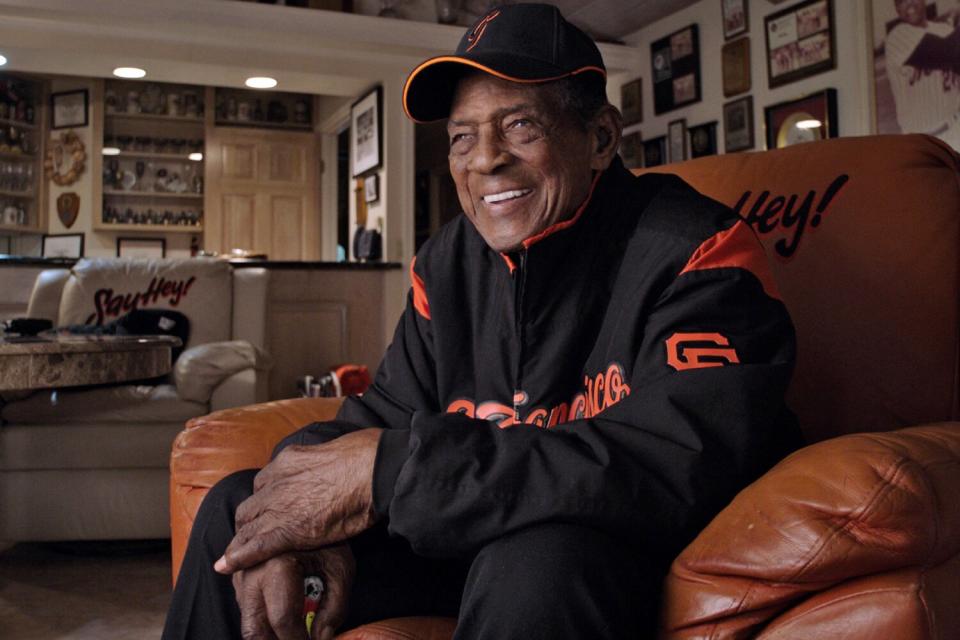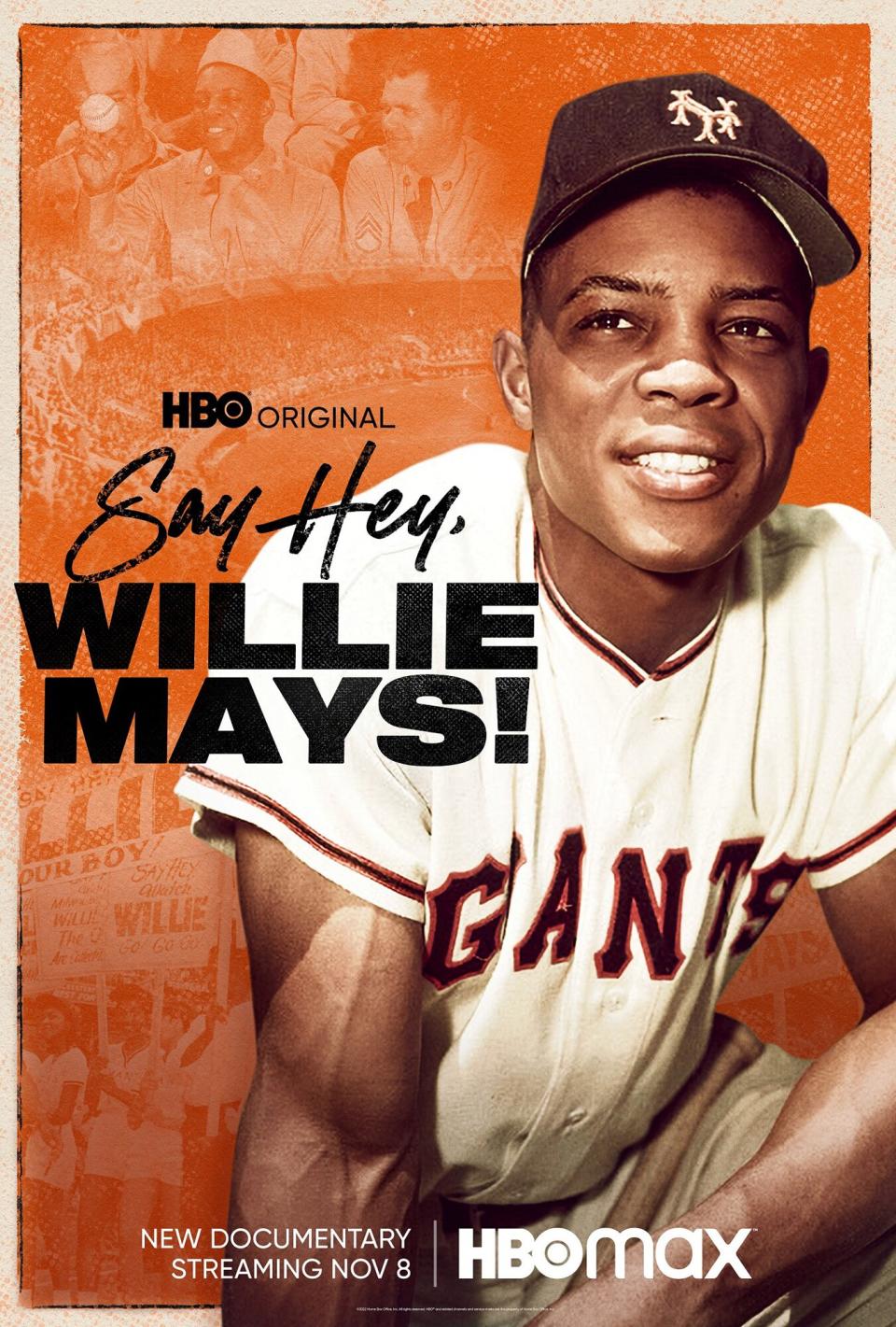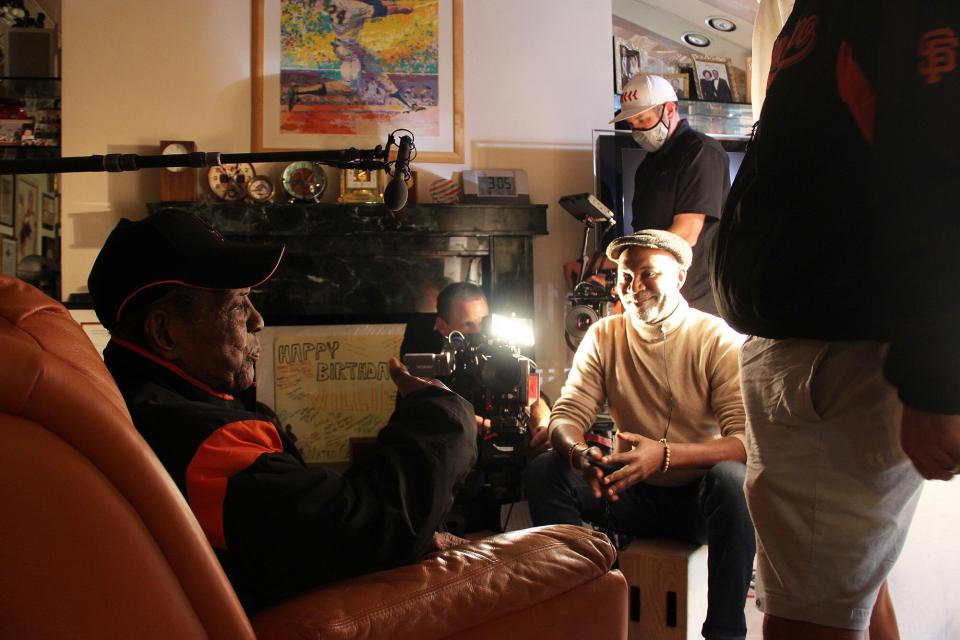Say Hey! Willie Mays Documentary Goes Beyond the Legend, Pays Tribute to the Person
A new documentary on HBO examines the life and legacy of Willie Mays. Arguably the greatest baseball player of all time, Mays has long since been discussed in mythological terms. What's been lost in the iconography is a thoughtful appraisal of Mays, the human being.
That was director Nelson George's goal when he set out to make Say Hey, Willie Mays!, which premieres Tuesday on HBO at 9 p.m. ET/PT and features an extensive interview with Mays, now 91. While Say Hey celebrates Mays' charismatic playing style, it also delves into his formative influences and presents the complexities of his status as a Black celebrity in the civil rights era.
In an interview with PEOPLE, George says he began work on his film — its title references Mays' famous catchphrase — by writing in his notebook a simple question: "Who was Willie Mays?"
In answering that, Say Hey takes the viewer back to Mays' native Birmingham, Ala., where his father played for industrial company teams and let his son sit on the bench with him as a child. Mays, George notes, is a classic jock's jock who enjoys the camaraderie of teammates and clubhouse banter.
In one delicious scene in the film, George shakes Mays' hand for the first time — and then winces at how strong his grip is, as both men laugh. Even at 91, Mays makes it clear who's the star athlete and who is not.

Courtesy of HBO Willie Mays
As someone raised on ballfields, loyalty is at the top of Mays' hierarchy of virtues — which explains the San Francisco Giants jacket Mays wears in virtually every public appearance. It also explains Mays' controversial, vocal defense of his Godson, Barry Bonds, despite widely-held assumptions that Bonds used steroids while breaking baseball's all-time home run record. (Bonds is an insightful interview in the film.)
RELATED: Willie Mays Is 90: Barack Obama Wishes a Happy Birthday to the Oldest Living Hall of Famer
Says George: "The number one word for Willie Mays was loyalty. If you're in with Willie, you're in."
Say Hey discusses Mays' time in the minor leagues, where, like most Black players during the early days of professional baseball's integration, Mays endured racial abuse. As the film notes, the horrific treatment Jackie Robinson received after breaking the MLB's color barrier has been well-documented, but nearly every Black Major Leaguer was treated similarly at one point or another.

Courtesy of HBO
The film follows Mays to New York, where he starred with the Giants before they moved to San Francisco in 1958. He lived in Harlem and was beloved in the community, playing stickball on the street with kids by day and frequenting the Red Rooster by evening.
Never miss a story — sign up for PEOPLE's free daily newsletter to stay up-to-date on the best of what PEOPLE has to offer, from juicy celebrity news to compelling human interest stories.
But when the Giants got to San Francisco, Mays wasn't embraced at first and encountered discrimination when he tried to buy a house in a traditionally White neighborhood. Despite the city's progressive reputation today, racism was overt in 1958, and housing segregation was the norm. The seller initially accepted Mays' offer on the house, but after the neighborhood revolted, they backed out of the deal.
RELATED: Check Out Barry Bonds' Selfie with a Sleeping Willie Mays
The city's mayor, wanting to smooth over tensions, offered to put Mays up in his own house, and Mays' realtor pointed him to different neighborhoods. But Mays wouldn't budge. He had a point to make.

Courtesy of HBO Willie Mays, Nelson George
Mays has often been criticized for a purported lack of outspokenness on civil rights issues. He was a mainstream celebrity with crossover appeal to White America, and during that tumultuous period, George notes, "Willie had a feeling that, 'My presence in the world is to bring people together.'" As the Black Power movement gained hold in the late 1960s, many felt Mays should be a more outspoken activist. Jackie Robinson's criticism of him was particularly blistering. The film quotes Robinson as saying: "Willie's personable and has great talent but he's never matured."
But as the film shows, the idea that Mays never made any sacrifices for civil rights isn't accurate. In San Francisco, Mays stood his ground and eventually got the house. Soon after, someone threw a bottle into the home, shattering his window while Mays' son slept.
"Different people do things in different ways," the film quotes Mays as saying decades ago in response to Robinson's criticism. "Everyone must do his own job in his own way. And in my heart, my way is just as important as Jackie Robinson's way."
Say Hey, Willie Mays! premieres Tuesday on HBO at 9 p.m. ET/PT and is available to stream on HBO Max.

 Yahoo Autos
Yahoo Autos 